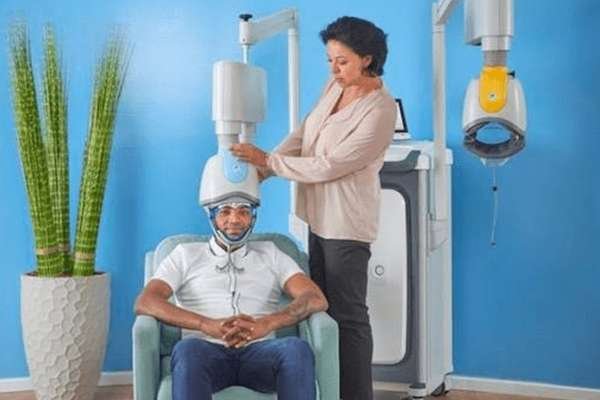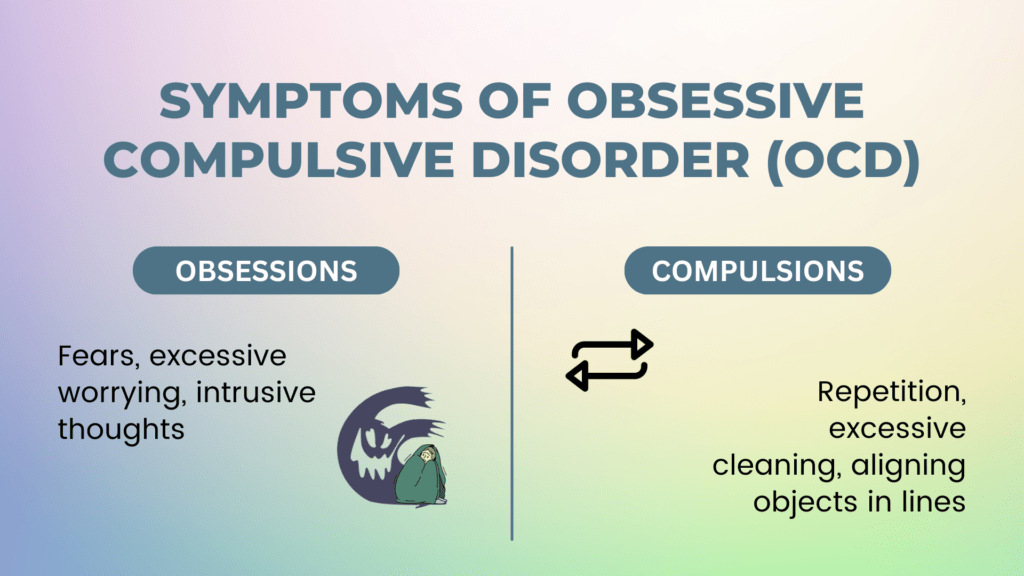Best Affordable Psychiatrist Clinic for Brain Stroke Treatment in Gurugram at Positive Mind Care
A brain stroke occurs when the blood supply to part of the brain is interrupted...

Positive Mind Care and Research Centre is a leading mental health care facility of Delhi – NCR, dedicated to helping individuals to overcome Anxious Depression and reclaim their joyful lives through a unique breakthrough technology called Deep Transcranial Magnetic Stimulation (Deep TMS), which can reach significant depth and breadth of the brain and produce broad stimulation and functional modulation of targeted brain areas to help treat Anxious Depression.
Obsessive-Compulsive Disorder (OCD) is a mental health condition characterized by recurring, intrusive thoughts (obsessions) and repetitive behaviors or mental acts (compulsions). It affects millions of people worldwide, causing significant distress and impairing daily functioning. Understanding the types, symptoms, treatment options, and coping strategies for OCD is essential in providing support and promoting recovery for individuals living with this disorder.
Obsessive-Compulsive Disorder (OCD) is a mental health disorder that involves a cycle of obsessions and compulsions. Obsessions are intrusive, distressing, and unwanted thoughts, images, or urges that repeatedly enter a person’s mind. These obsessions are often irrational and cause significant anxiety or discomfort. Common obsessions include fears of contamination, doubts about safety, concerns related to symmetry and order, and forbidden or taboo thoughts.
Compulsions, on the other hand, are repetitive behaviors or mental acts that a person feels compelled to perform in response to the obsessions. The aim of the compulsions is to reduce the distress caused by the obsessions, but the relief is short-lived and temporary. Common compulsions include excessive washing or cleaning to reduce fears of contamination, repeated checking to ensure safety, counting or repeating actions to prevent harm, and engaging in mental rituals to neutralize obsessions.
OCD can significantly impact various aspects of a person’s life, including work, school, relationships, and overall well-being. The time-consuming nature of compulsions can lead to impaired productivity and social withdrawal. Many individuals with OCD recognize that their obsessions and compulsions are irrational and excessive, but they feel driven to perform the behaviors to alleviate anxiety, leading to a distressing internal struggle.
The exact cause of OCD is not fully understood, but it likely involves a combination of genetic, environmental, and neurobiological factors. Imbalances in certain brain chemicals, such as serotonin, are thought to play a role in the development of OCD.
OCD presents in various forms, often categorized into different subtypes based on the predominant themes of obsessions and compulsions. Common subtypes include:
The latest breakthrough in the treatment of Obsessive-Compulsive Disorder (OCD) is Deep Transcranial Magnetic Stimulation (Deep TMS), a non-invasive and innovative therapy that offers new hope for individuals struggling with this challenging condition. Deep TMS utilizes magnetic fields to target specific brain regions associated with OCD, stimulating neural activity to alleviate symptoms. Unlike traditional treatments such as medication and cognitive-behavioral therapy (CBT), which may not work for all patients or can have significant side effects, Deep TMS provides a safe and effective alternative with minimal adverse effects.
Deep TMS works by delivering magnetic pulses through a specialized helmet to areas of the brain implicated in OCD, such as the anterior cingulate cortex and medial prefrontal cortex. This stimulation modulates neural circuits, reducing the severity of obsessive and compulsive behaviors. Clinical trials and studies have demonstrated the efficacy of Deep TMS in significantly improving symptoms in many patients who had previously not responded to other treatments. This innovative approach is backed by robust scientific evidence, making it a promising option for those seeking relief from OCD.
The treatment process with Deep TMS is straightforward and convenient, typically involving daily sessions over several weeks. Each session lasts about 20 minutes, during which patients remain fully awake and can resume their normal activities immediately afterward. This non-invasive nature of Deep TMS, coupled with its effectiveness, makes it an attractive option for many individuals.
At Positive Mind Care, we are at the forefront of offering this cutting-edge treatment, providing personalized care to ensure the best possible outcomes for our patients. Our experienced team is dedicated to leveraging the latest advancements in mental health treatment, like Deep TMS, to help individuals regain control over their lives. By addressing the root causes of OCD and providing lasting relief, Deep TMS represents a significant advancement in the field of mental health, offering new hope and improved quality of life for many patients.
Studies suggest that roughly 2.3% of the global population suffers from OCD.

It’s important to note that the symptoms of OCD can vary in severity and presentation among individuals. A qualified mental health professional should conduct a thorough evaluation for an accurate diagnosis and appropriate treatment. OCD is a treatable condition, and with appropriate support and treatment, individuals can learn to manage their symptoms and improve their quality of life.

Provides a convenient and flexible approach to treatment, allowing patients to receive care while maintaining their daily routines.
A non-invasive procedure that targets specific areas of the brain associated with depression. This innovative treatment option has shown promising results in reducing symptoms of MDD and is FDA approved.
A supportive and empathetic environment to express thoughts, emotions, and experiences, develop coping strategies, and gain insights to improve overall well-being.
Our center combines expert medical care with a compassionate and supportive environment, empowering individuals to reclaim their lives.
Cultivate awareness, reduce stress, and enhance overall well-being through meditation, yoga, and other practices to keep you grounded.
Our center combines expert medical care with a compassionate and supportive environment, empowering individuals to reclaim their lives.

Deep Transcranial Magnetic Stimulation (TMS) is a non-invasive medical procedure used in the treatment of Major Depressive Disorder (MDD) that does not respond well to conventional treatments like antidepressant medications and psychotherapy. Deep TMS works by delivering magnetic pulses to specific areas of the brain associated with depression, modulating neural activity in these regions. Here’s how it helps in treating MDD:
Non-invasive Procedure: Deep TMS is a non-invasive technique, meaning it does not require surgery or anesthesia. It is considered safer than invasive procedures like electroconvulsive therapy (ECT).
Targeted Brain Stimulation: The treatment targets specific areas in the brain known to be involved in depression, such as the prefrontal cortex. By stimulating these regions, it aims to normalize the abnormal brain activity associated with MDD.
Neuroplasticity: Deep TMS may promote neuroplasticity, which refers to the brain’s ability to reorganize and form new neural connections. By stimulating neural pathways, it may help to establish healthier patterns of brain activity, potentially alleviating depressive symptoms.
Treatment Resistance: Deep TMS is particularly useful for individuals who have not responded well to other treatments for depression. It offers an alternative option for those who may have treatment-resistant depression.
Minimal Side Effects: Deep TMS is generally well-tolerated, and the side effects are typically mild and temporary, such as headaches or scalp discomfort.
We at Positive Mind Care and Research Centre, a new generation mental health clinic, are dedicated to providing the highest quality care and research in the field of mental health. We take a positive and holistic approach to mental health, focusing on the individual as a whole and their unique needs and circumstances. We are committed to using evidence-based scientific treatment methods, conducting research, and providing education and outreach to the community. Remember that you are not alone, and we are here to help you on your journey towards betterment !
Positive Mind Care is committed to offering comprehensive and effective treatment for Obsessive-Compulsive Disorder (OCD), providing a beacon of hope for those affected by this challenging condition. Our state-of-the-art clinic in Delhi and Gurugram is equipped with advanced treatment options, including the cutting-edge BrainsWay Deep Transcranial Magnetic Stimulation (TMS) machine. As pioneers in introducing this technology to the Delhi-NCR region, we provide a non-invasive, effective solution for individuals who have not found relief through traditional methods like medication and therapy.
Deep TMS targets specific brain regions involved in OCD by using magnetic fields to stimulate neural activity and reduce symptoms. This innovative treatment has shown promising results in alleviating OCD symptoms, offering a new avenue of hope for those who have struggled with other forms of treatment. By directly addressing the neural pathways associated with OCD, Deep TMS can provide significant and lasting relief, enabling patients to regain control over their lives and daily functioning.
At Positive Mind Care, our approach to OCD treatment is holistic and personalized. We combine Deep TMS with other evidence-based therapies such as cognitive-behavioral therapy (CBT), exposure and response prevention (ERP), and medication management when necessary. Our experienced team of mental health professionals is committed to understanding each patient’s unique needs, crafting tailored treatment plans that maximize the chances of recovery and sustained mental health.
Effective OCD treatment at Positive Mind Care can profoundly impact individuals’ lives, reducing symptoms and enhancing overall well-being. By addressing the root causes of OCD and equipping patients with coping strategies and tools, we help individuals experience improved relationships, increased productivity, and a better quality of life. Our compassionate care and dedication to mental wellness ensure that patients receive the support they need at every stage of their recovery journey.
If you or a loved one is struggling with OCD, Positive Mind Care offers the expertise and innovative treatments necessary to foster healing and promote a brighter, more balanced future.
Major Depressive Disorder is a mental health condition characterized by persistent feelings of sadness, loss of interest or pleasure, and a range of physical and emotional symptoms.
Major Depressive Disorder can vary in duration. Some individuals may experience a single episode, while others may have recurrent episodes throughout their lives. Episodes can last for weeks, months, or longer if left untreated.
Yes, Major Depressive Disorder can recur, and individuals who have experienced an episode in the past are at a higher risk of future episodes.
Treatment may include psychotherapy (such as cognitive-behavioral therapy), antidepressant medication, and in some cases, a combination of both. Lifestyle changes, support groups, and self-care practices can also be beneficial. Additionally, we offer the latest breakthrough technology known as Deep TMS.
Feeling sad doesn’t necessarily mean you are experiencing depression. It is normal to feel sad or down at times, especially in response to certain life events or stressors. However, if your sadness is persistent, intense, and interferes with your daily functioning, it may be worth exploring further.
If you are concerned about your feelings of sadness or if they are causing significant distress or impairment in your life, it is advisable to consult with our healthcare professionals.
If you or someone you know is struggling with Depression, it’s important to approach the situation with care and empathy. Here are some steps you can take: educate yourself, consult a healthcare professional, and seek treatment. An individual’s journey to treat MDD is unique, the level of support required may vary. It is important to know all the possible options available to them.
Learn more about how Positive Mind Care innovative TMS treatment technology can be effective in treating psychiatric disorders.
A brain stroke occurs when the blood supply to part of the brain is interrupted...
Addiction is a serious and life-altering condition that can disrupt both the personal and professional...
Anxiety is a common mental health issue affecting millions of individuals globally. It manifests in...
Disclaimer:- The information provided on this website is for informational & educational purposes only and should not replace professional medical advice. Please consult with a qualified healthcare provider for personalized treatment recommendations.
Copyright © 2023. Positive Mind Care. All Rights Reserved